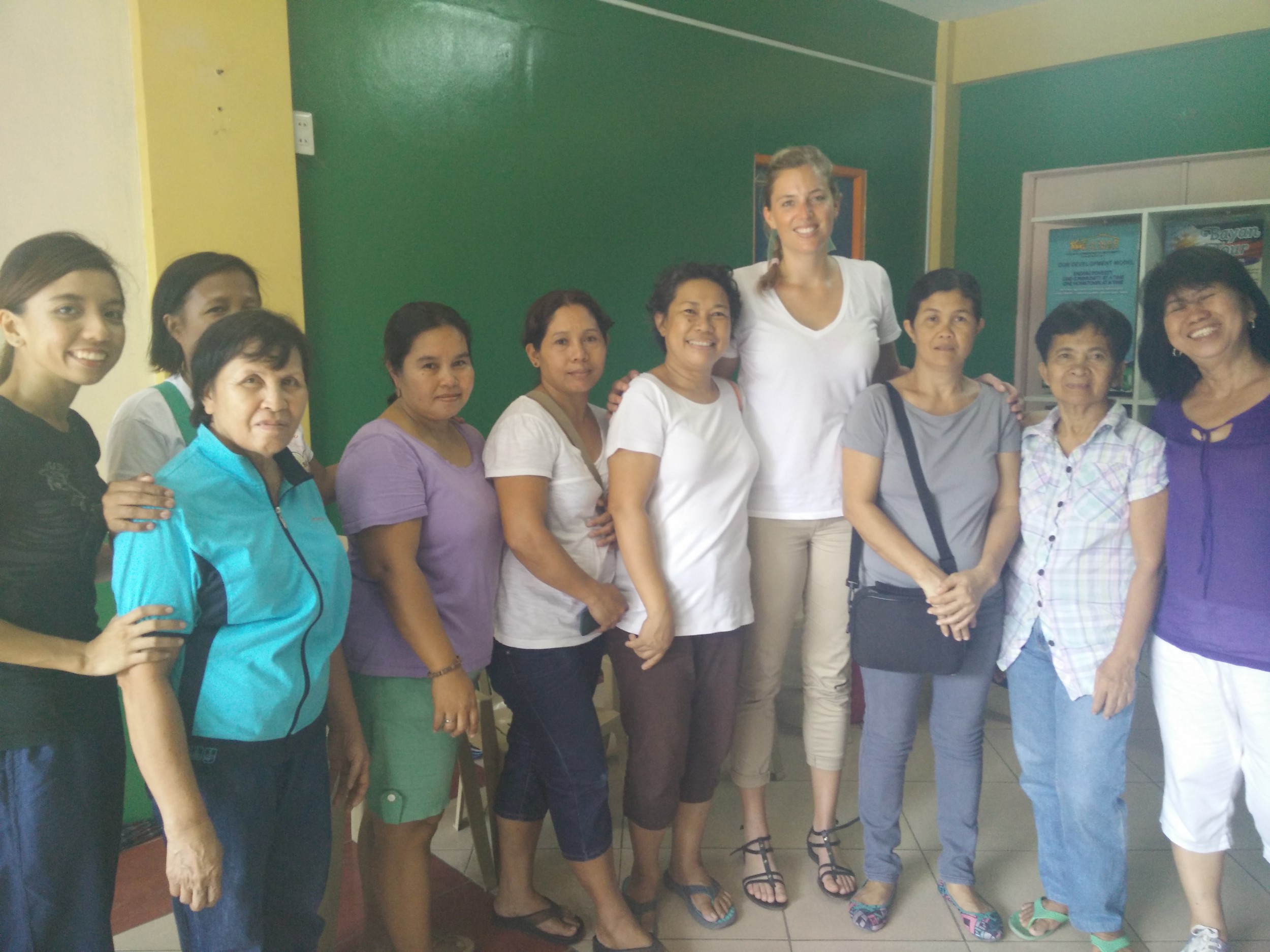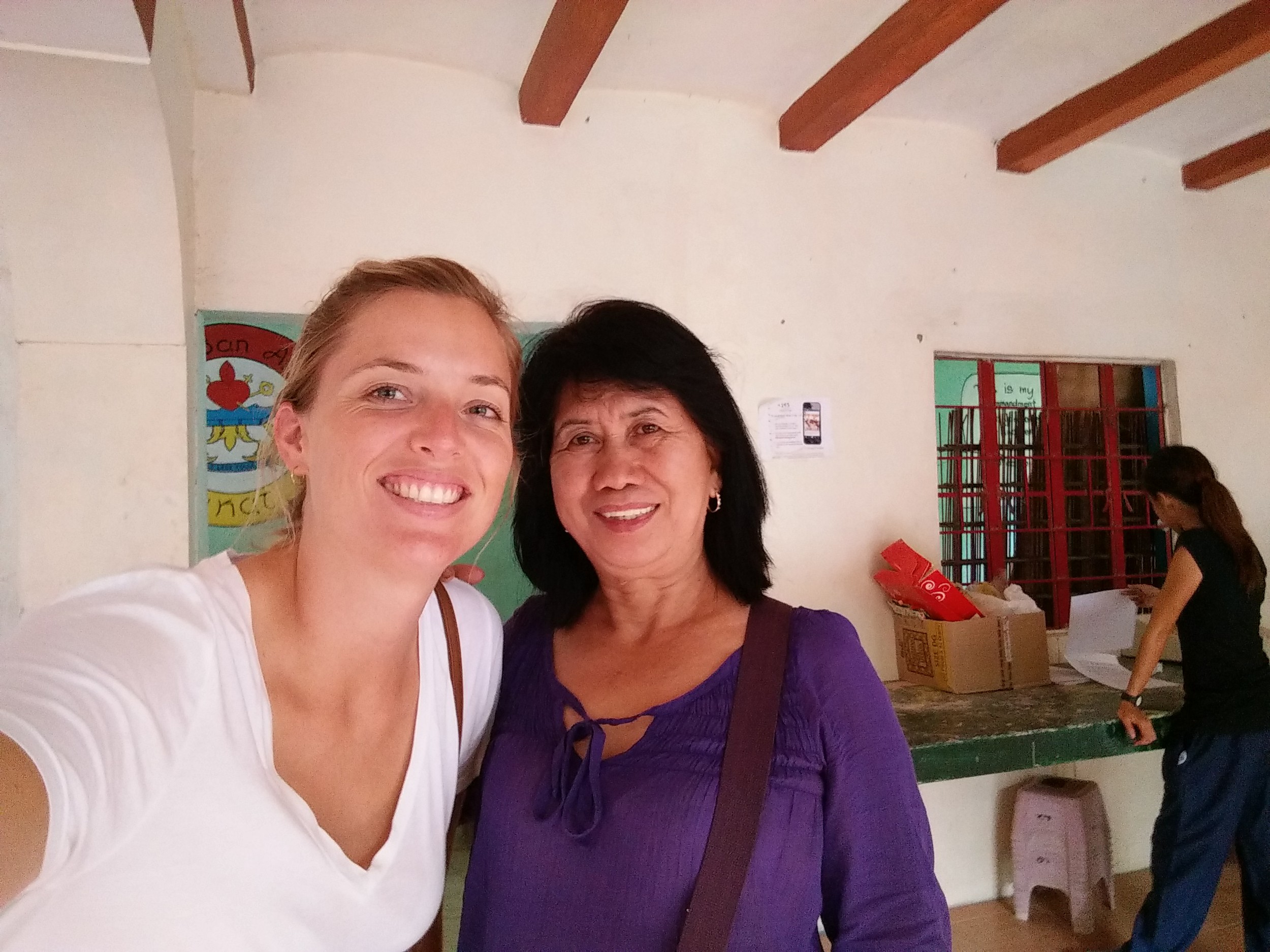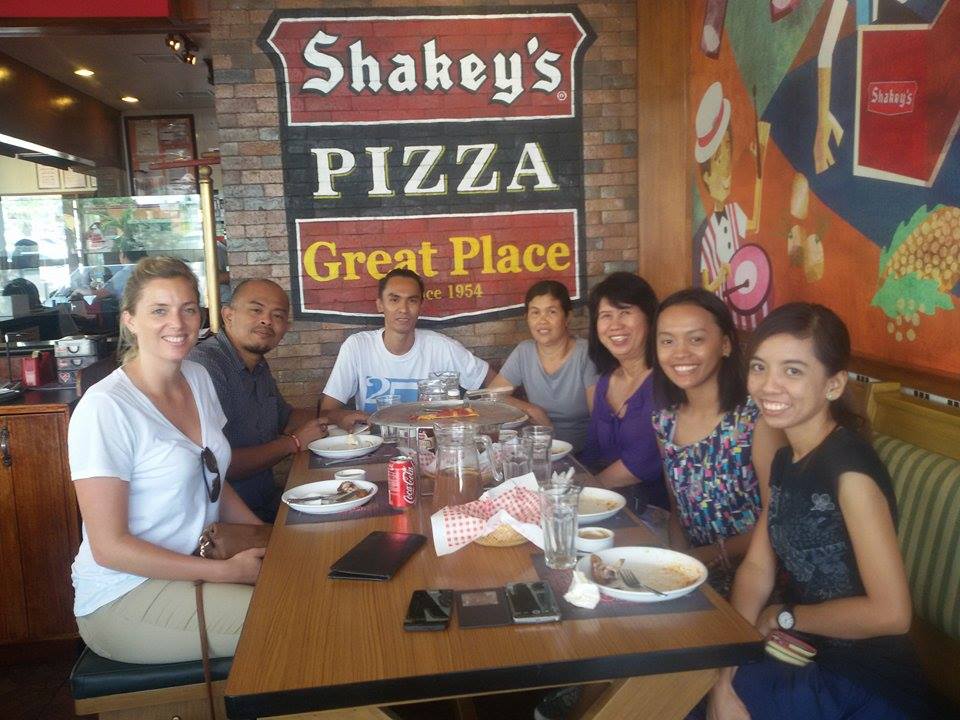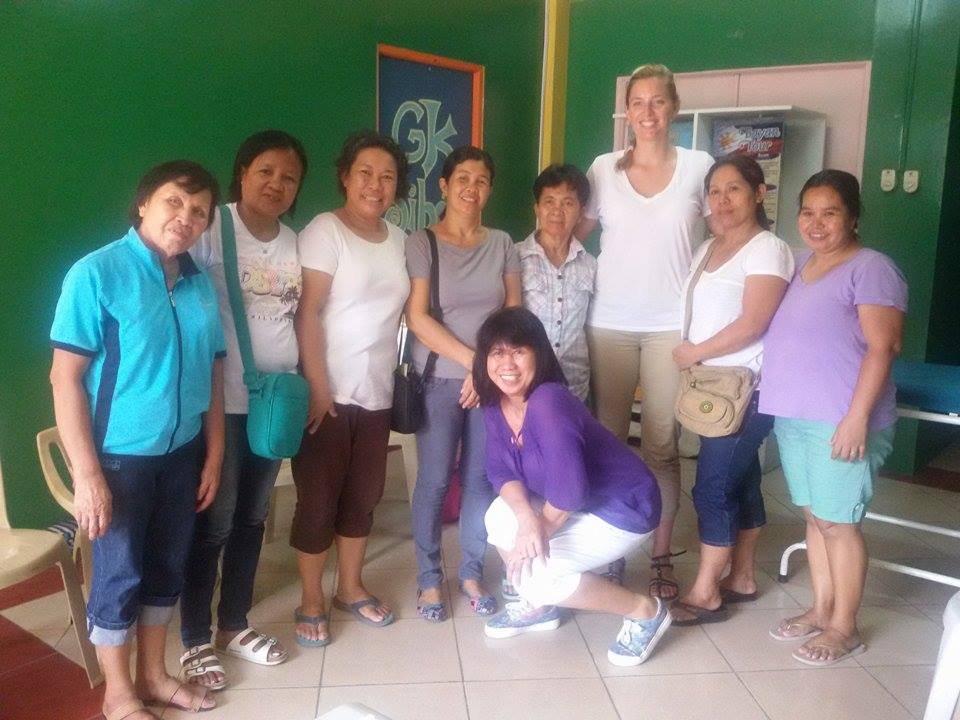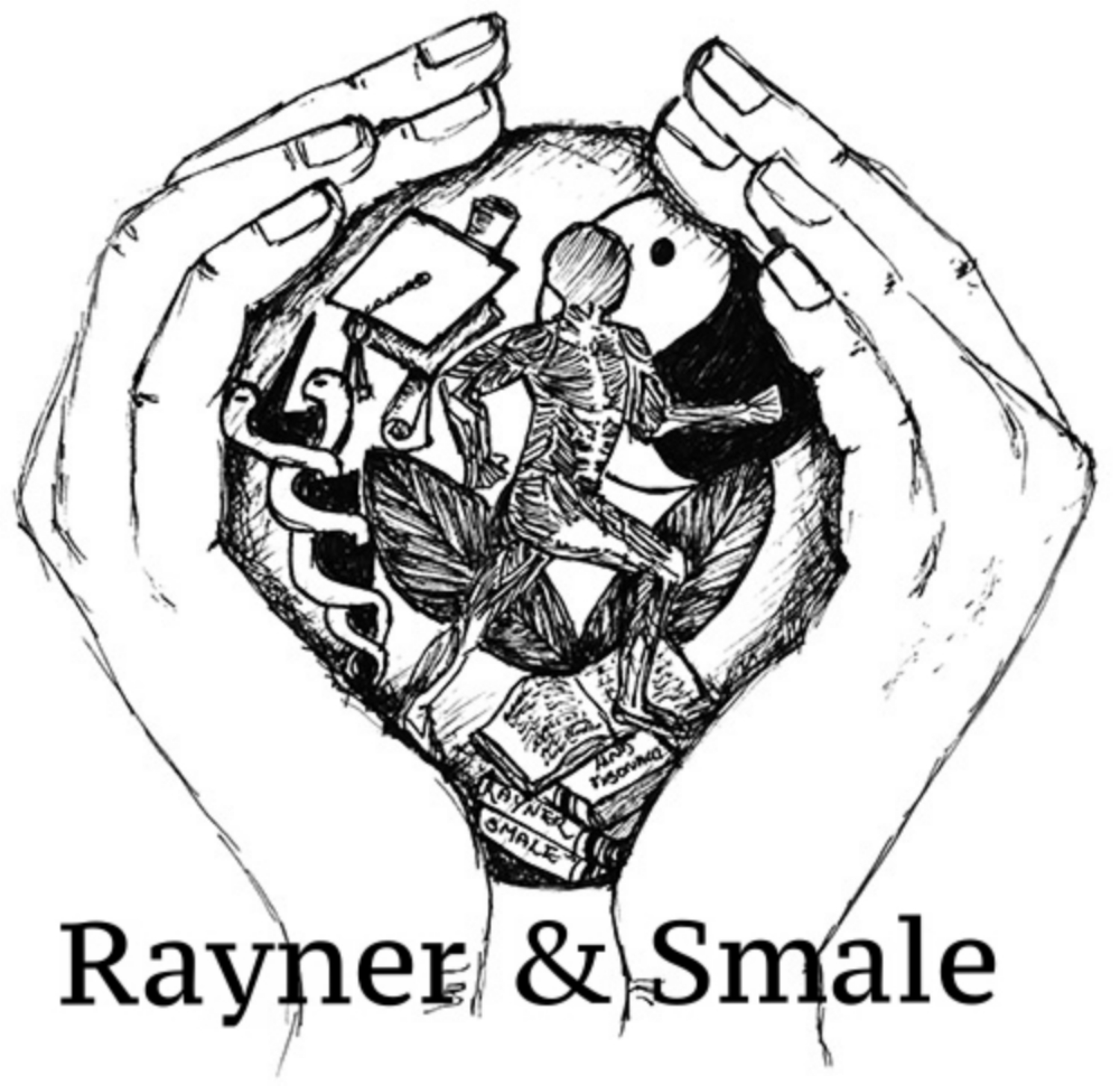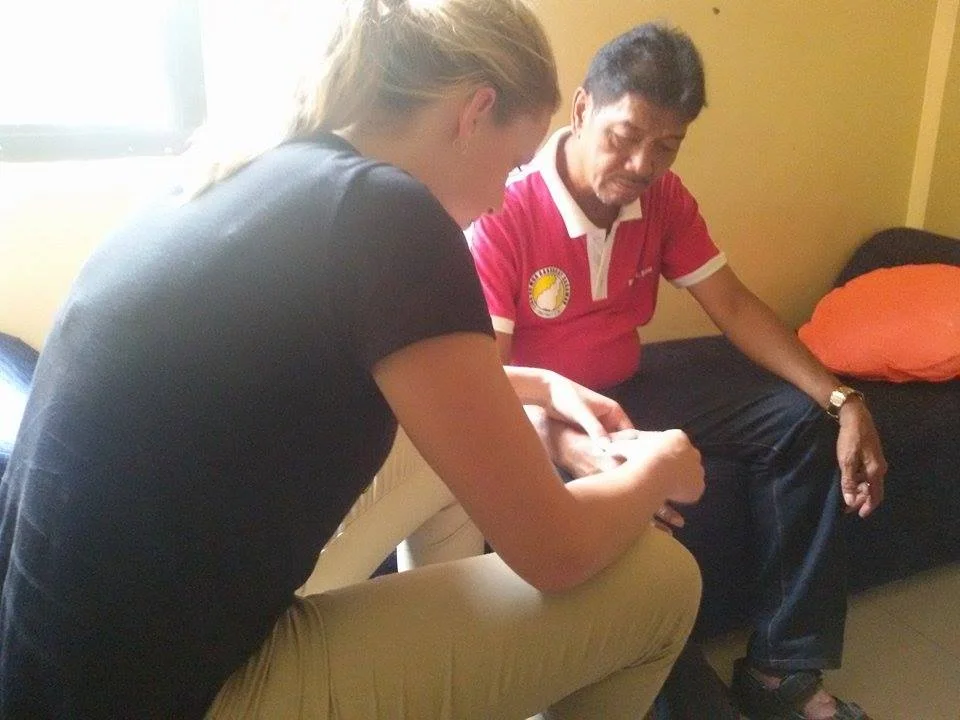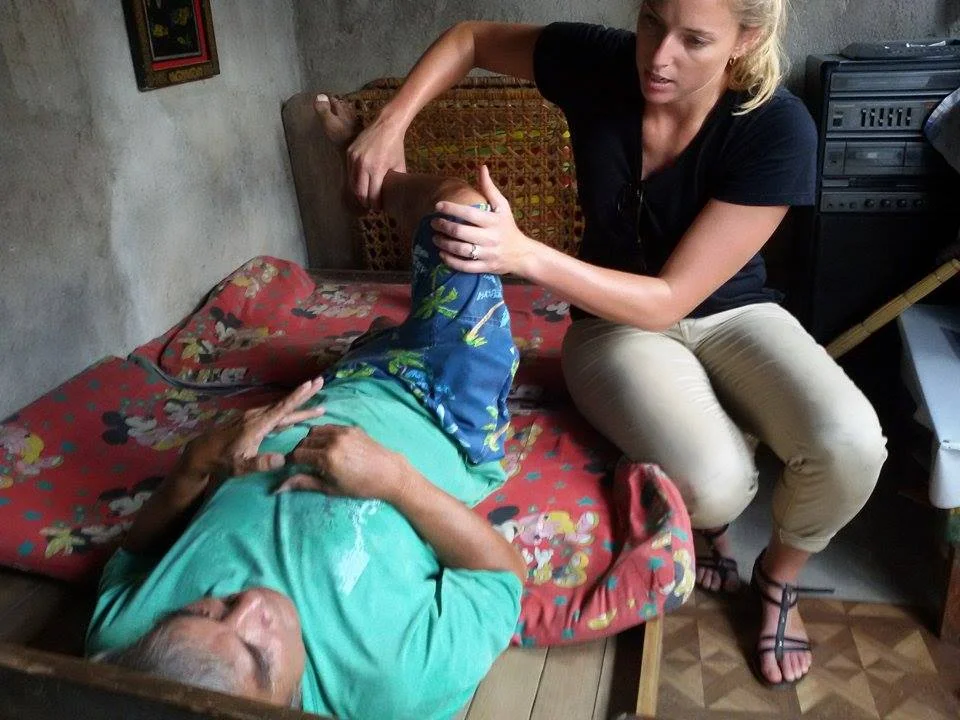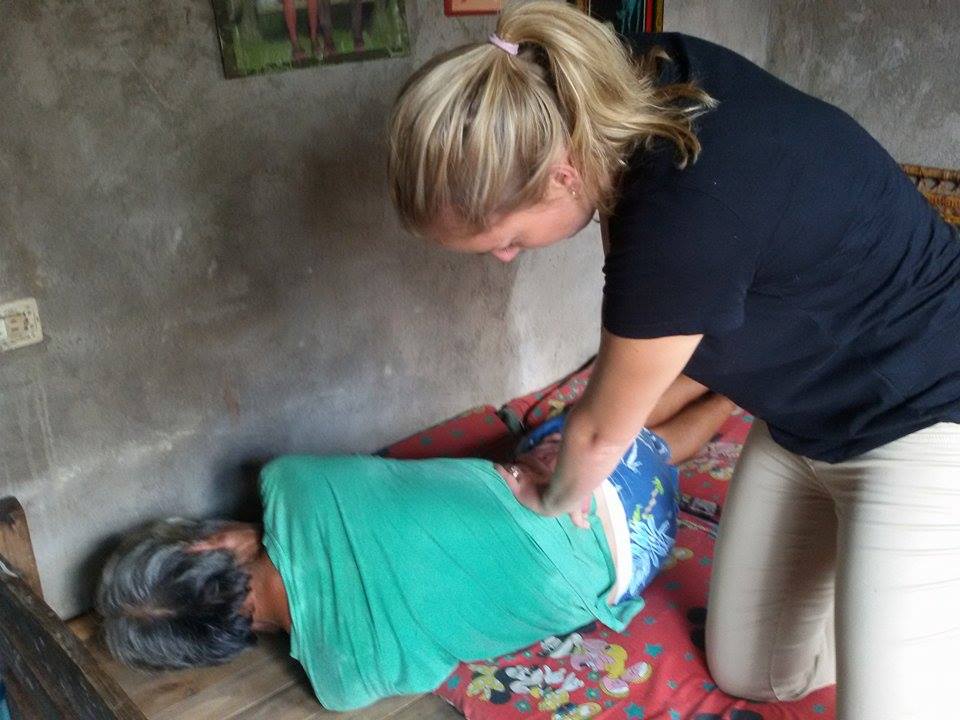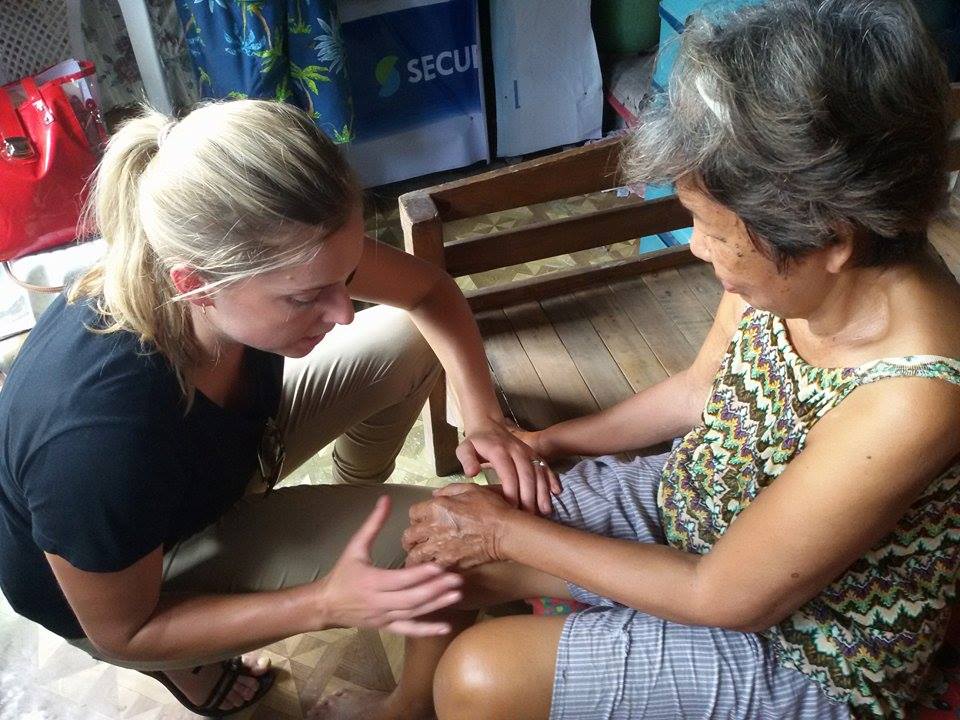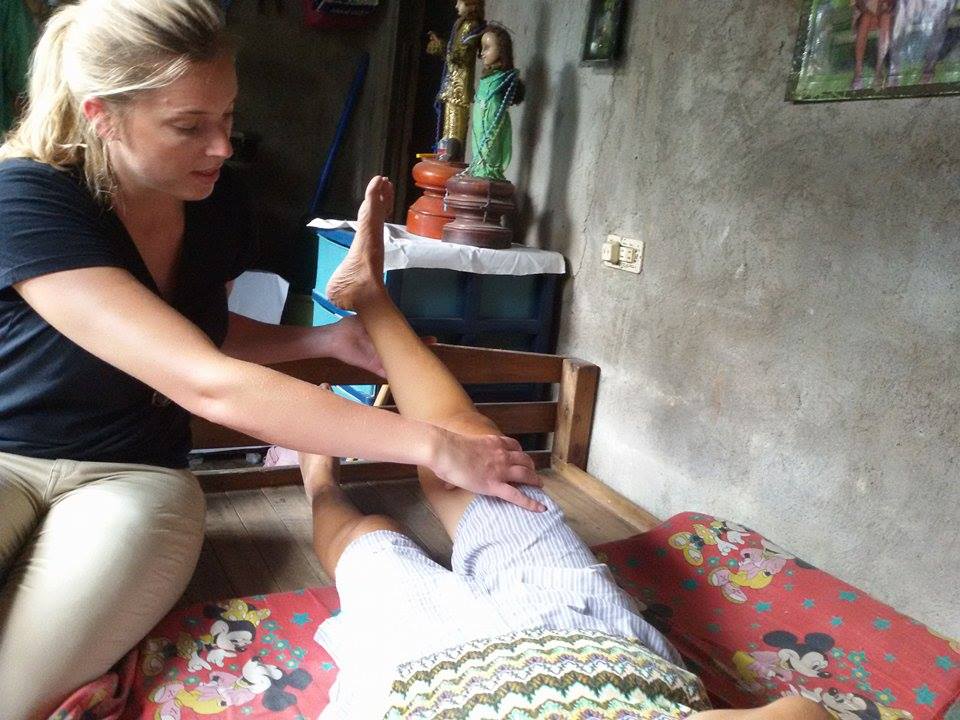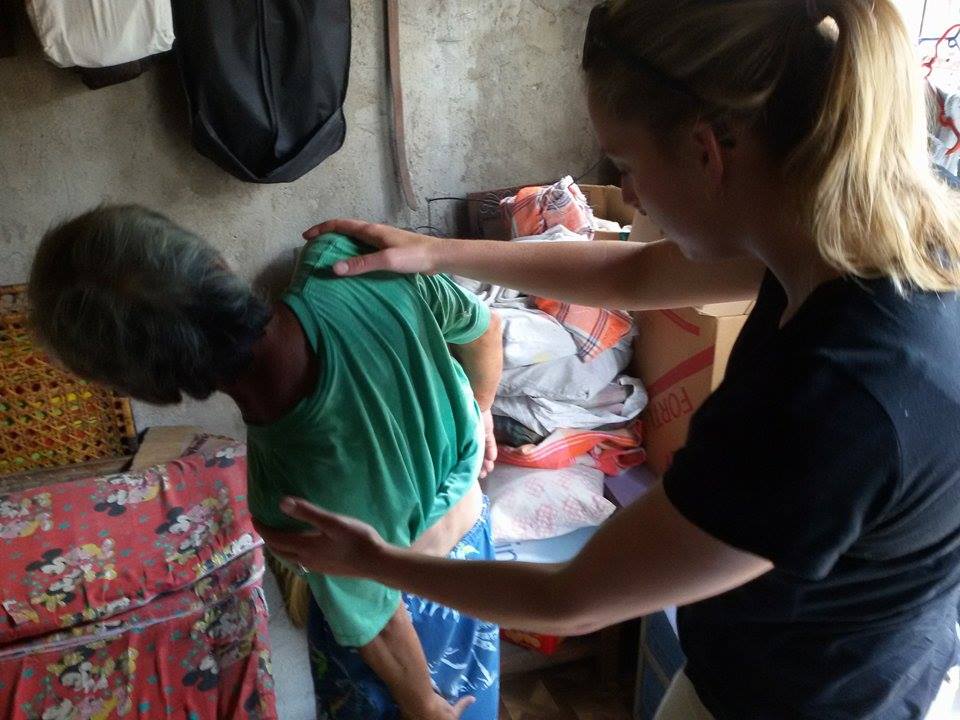Mission aid work in Manila, Philippines
June 10 and 11th 2015 are days that will never forgotten. A colleague and friend Carlos Bello has recently set up a NPO in the Philippines called Tulong sa Kapwa Kapatid (2KK) that conducts health missions. 7 months ago they became involved with Big Hand’s Mission, an NPO with the mission of delivering Physical Therapy Rehabilitation to those with little or no access. Their aim is to link expert therapists directly to where it is needed most, and to provide training to health workers and other professionals in the community. I was given the opportunity to volunteer on behalf of 2KK for 2 days.
This blog is a reflective piece about my experience. It was my first mission aid work and looking back now I can see that it was moving, inspiring, empowering and a deeply emotional event in my life. Above it, it was an adventure and I want to share it with you.
The day begins...
6/10/15 9.30am
Sitting in the hotel lobby of Ascott Bonifacio City in Fort Bonifacio (an amazing hotel in Fort Bonifacio, Manila) I felt nervous, excited, and apprehensive about the unknown they lay head. Familiar with the comforts of a deluxe hotel like the Ascott, I felt excited to explore the ‘real’ Manila. But nothing was going to prepare me for that day.
I asked myself the questions:
- Will I know what to do?
- Will it make a difference to anyone?
- Does it matter what the outcome is? At least I’ve tried.
I reminded myself of a quote, one I'm sure we've all seen somewhere on a inpsirational tshirt or fridgemagnet.
“At the edge of your comfort zone, thats where life begins”.
Over the past 5 months I’ve be constantly pushed to explore the boundaries of my comfort zone and I can say this…. those two days have been well beyond any limit of my comfort zone and yet taught me a lot about life, the world and what I have to offer it.
Day 1: Payatas
My first day I met a complete stranger Jessie Villareal and he was my tour guide, driver, security, translator, DJ and photographer for the 2 days. He works in logistics, accounting and personal relations for 2KK. I really appreciated his help, nothing would have worked without him. He really went above and beyond to make sure I was comfortable, safe and knew what I had to do. And having no background in healthcare, he did an amazing job at translating for me.
Our first day was in the Payatas, known as the tip. Its a place where 70% of the waste of Manila goes and the people who live there work on the dump. For me, it was such a harsh reality into the poverty that people live in. Yet they are all so happy.
The children ran up to me looking scared and perplexed like I was an exotic bird they had never seen. And the officials gathered around me like I was a rare jewel needing protection from the people. Although I never felt unsafe I was completely aware to the effort they went to keeping me out of any potentially dangerous situation.
The heat was intense and my job for the day was to walk through the Payatas going from home to home treating people and looking for people. I treated conditions like knee pain, back pain, peripheral neuropathy, carpal tunnel syndrome and lymphodema. There was no medical history to go off, only a brief idea of what body region they were being seen for. Again, I hadn't prepared myself for the pain and disability that many people just live with.
One beautiful elderly man described to me how his feet had shooting pains throughout them and often they went numb. There was nothing in his history that indicated a mechanism of injury. From his subjective markers and my assessment I felt he had developed a peripheral neuropathy bilaterally. When I explained this to him (through a translator) he replied "it sounds like this is now just my life and there is nothing I can do so I must be grateful I can still walk". I nearly cried. The problem always must be put into context.
It was explained to me by a local when I made a comment about their approach to pain and disease and he replied "when you know you have nothing and will get nothing, all you can do is be happy with the life you have". These people had totally embrassed that philosophy. It took me by surprise.
All was going well until the end of the day. Although I was running on a high of adrenaline and telling myself to swallow any judgement, any discomfort I was feeling (from the heat, from not going to the toilet all day, from not eating or drinking, from feeling unsure of what I had to do)…. I just couldn’t cope in the last few hours.
Driving to our last visit I saw several dogs lying dead, emaciated and diseased on the side of the road. I felt so dirty and suffocated seeing their suffering. People just walked and drove past without taking notice. It made me think that we just have one life in it time and when its up, its up. For these poor animals they were born into unfortunate lives and were offered nothing more and died alone and in pain. Feeling sick we arrived at the last house.
It was the worst lymphadema and cancer I’ve ever seen. The truth is I’m sure she was palliative and they didn’t know. I didn’t know what to say. I’m not familiar with deciding wether someone is going to die or not. I decide if I can help their pain or return them to sport. If it was Australia or America… you’d never find this on a home visit, she’d be in hospital. But none of that was possible and she landed up with me. I felt so helpless and sorry and crushed by the pressure of feeling that I had to know what to do. So I did what I could, I offered the best treatment I knew how to do and in the back on my mind tried to comfort myself with the belief that this was more than she had the day before or even an hour ago. Yet I kept thinking of those dogs and her suffering and just needed to escape the suffering and disease, the severity of which I would never be able to impact with my knowledge, with my hands, with my naive courage.
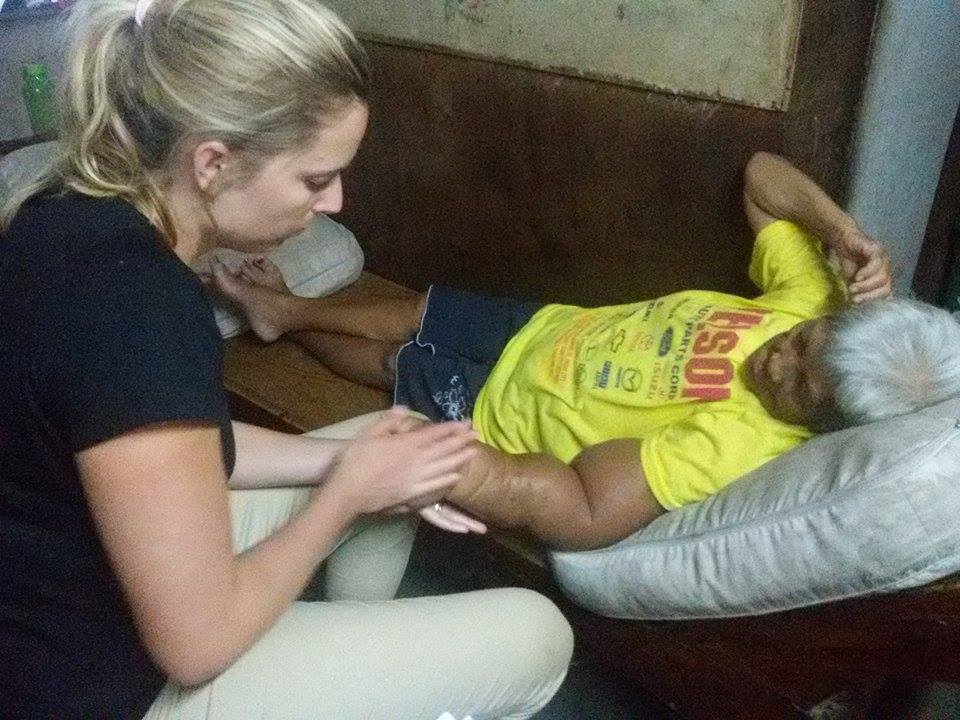
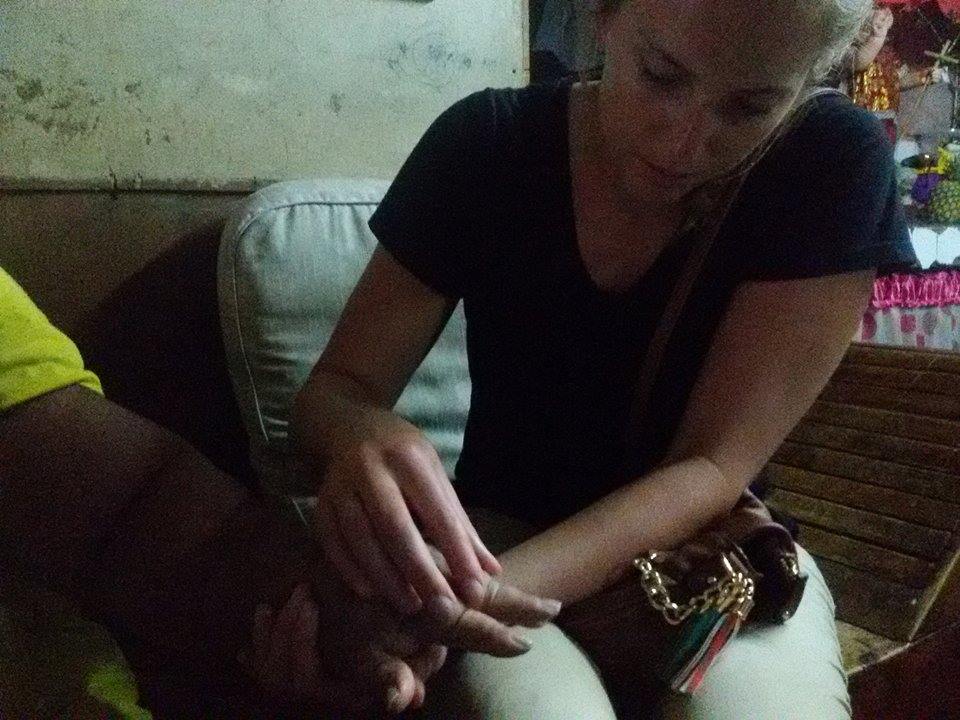

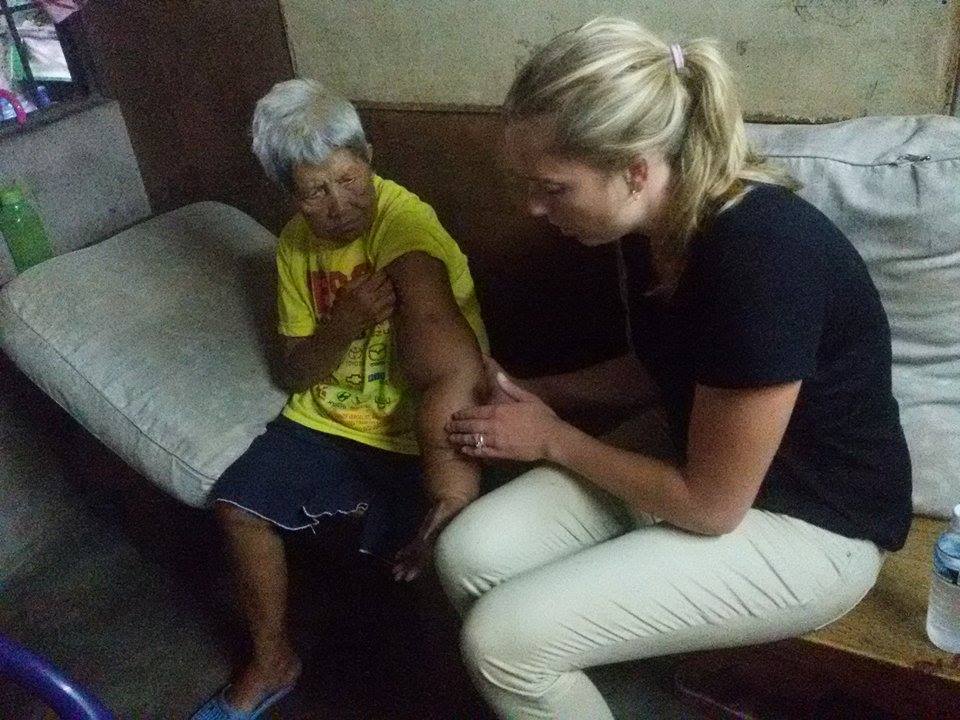
Feeling depleted I went home and yet had no right to cry or pitty those I had met. This was their life and they mostly seemed very happy and grateful.
In the comforts of my hotel after a long hot shower, I ordered room service and tried to decompress and understand what it was that disturbed me so much. I had serious second thoughts about attending the second day but I assured myself it was an experience in life that could really impact my trajectory and such a privilege to be let into these people’s lives.
Day 2: Gawad Kalinga in Taguig City
The second day I woke with a clearly perspective about what I was feeling the night before. It was more than the poverty and disability. It was about me and what I have to offer the world. There have been countless times in my career where I have just felt inadequate, not good enough, not smart enough, and that I was never going to be a successful career. Pushing myself to be faster, more accurate, more personable, more intelligent…. and often it left me feeling like I was just not good enough.
Yet in the Payatas, I had so much to offer. So much knowledge to share. Such a clear understanding of what to do, but I just didn’t have the time or resources to achieve that. And suddenly I realised that in the devastation I was shown that I am worthwhile, that I do know things worth sharing, that I can help and I can make a difference. That I have more to give than I know how to. With that clarity I embarked on my second day with confidence. And it was a wonderful day.
I went to Taguig City and visited the health care workers for Gawad Kalinga, a group that has developed a community and provided commision housing to over 600 families in Taguig City. Gawad Kalinga means ‘a group to provide a shoulder’ and Tulong Sa Kapua Kapatid (2KK) means ‘helping each other brothers and sisters’.
The day started with a 2 hour workshop discussing continence and pelvic floor in women’s health and mobility assessments for stroke patients. Such beautiful and lovely people. They were so happy and eager to learn and asked brilliant questions. I really felt they understood the message I was trying to share and they wanted to help so much. But, teaching women's health in another country I came to find is a completely different experience and application of my knowledge.
Let me share with you what we discussed in those 2 hours....
Building rapport
It's confronting to say words like vagina, sex, poo, wee in a country where I didn't fully understand their culture. Maybe my ignorance good as it didn't limit me from speaking about these topics and reflecting on it now, it made the workshop so much more successful. I've come to realise that you need to be confident before those around you will trust you and only then can you build rapport.
I'm not going to pretend to know or understand what their lives are like but I did try to share knowledge about what I know and it required a bit of team effort to make this information applicable and useful.
It was really hard to break the ice. I had to put my own insecurities aside and forcefully not be embarrassed. Although I felt composed and confident, the amount of sweat pouring down my arms and forehead would have suggested otherwise. It's a developed skill that I'm still mastering... Your physio face, the one you use when you don't want people to know what you're actually thinking and need to remain professionally composed. When is it needed? When you say vagina to a complete stranger and act as though it's as normal to discuss as any other body part.
Pelvis floor, that's not a commonly known word. To discuss anatomy with these women I had to stand up and point out my pubic bone, coccyx and put my hand in between my legs to demonstrate what area we were going to discuss. This happened in the first few minutes. You should have seen their faces. I thought "oh shit.... How am I going to get through or get out of talking about this".
So over and over again I said the words pelvic floor, vagina, continence, sex, birth... And slowly it started to sink in.
But still I wasn't sure... So I changed how I normally discuss this topic and started again with.... "Every body has a pelvic floor. It is a group of muscles found between your legs that surrounds the urethra (where we wee from), vagina (where babies pass through) and bottom (for pooing). You might not know it but you use these muscles every day. When you wee and at the end suddenly stop that wee... That is your pelvic floor contracting. When you hold in a fart.. You are squeezing your pelvic floor." This has to be the most informal way to describe it but it worked. Suddenly a women said "so these are muscles we use every day but are not conscious of using?" Boom. Yes. And she explained it to everyone else and they all started nodding and talking amongst themselves.
Then their gaze returned to me and another women asked "why are we talking about this?" Good question.
Because no one talks about it. Because every women should talk about it. Because pelvic floor health is vital for the health of a women.
It controls our continence, it holds the weight of the baby during birth and often sustains trauma during birth that may continue to effect continence later in life. I strongly believe that the more it's discussed the more people can be helped.
Various women offered up their personal experience as an example and we discussed issues like incontinence, both faecal and urinary, and constipation. It was a struggle to get past the initial description of anatomy, activation patterns, function and then I hit a bigger barrier. My treatment tools were no longer applicable.
For treatment of jncontinence we spoke about and practices activating pelvic floor and I walked them through a progressive strength program in sitting. Giving them the goal of 10 x 10 sec holds in standing. They all tried. They all had about 2 seconds. Normal I would palpate through the lower abdomen but I already thought I was pushing the limits and didn't demonstrate this.
Next we discussed constipation. And I was far less prepared for these questions. The average for each person is to defecate every 4-6 days and haemorrhoids are so common. They don't have access to fresh or large amounts of water, there is no such thing as dietary additives or fibre supplements and they eat mostly rice and the occasional papaya. So my usual tips were redundant. We spoke about the 'brace and bulge technique' and 'water drinks in the morning to speed up metabolism'. I recommended horizontal bed rest for haemorrhoids as any medical or pharmaceutical intervention was unavailable. It truely made me realise that although I was helping them understand more about the pelvic floor, it was going to take some inventive treatment techniques to overcome their problems. Either way... the conversation had begun.
From this point the day continued to grow. I treated a healthworker with acute back pain and several beneficiaries (residents) of GK that had suffered from strokes and was really surprised as to how much I could remember, having worked in musc for so many years. After demonstrating the stages of a mobility assessment for a stroke patient I then have several live examples of patients on home visits, ranging from cerebral strokes to hemiparesis and it was wonderful to teach the heathcare workers about gait retraining, balance assessment and tools for mobility.
I’m so grateful for this experience. I don’t know what will happen next but I’ve found a new limit to my comfort zone and discovered more about my identify, my passions, and how much in life I have to be grateful for.
Sian
